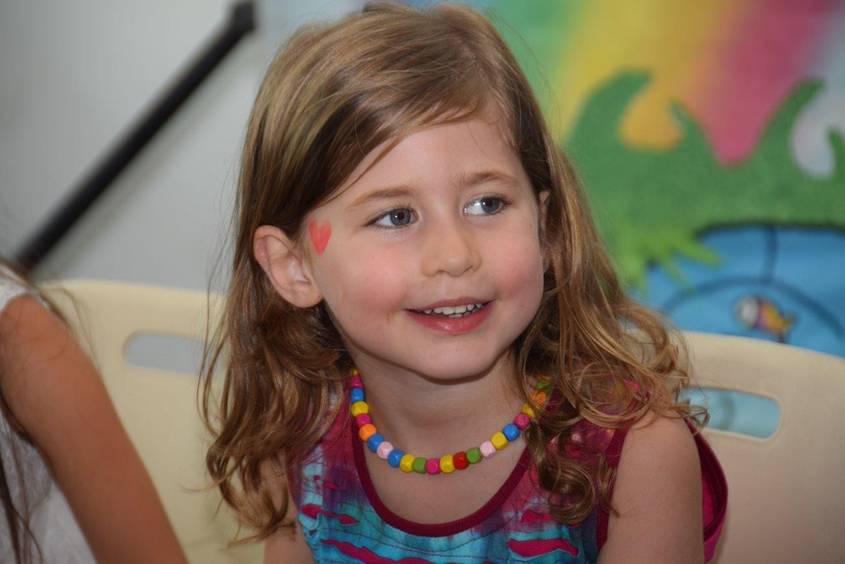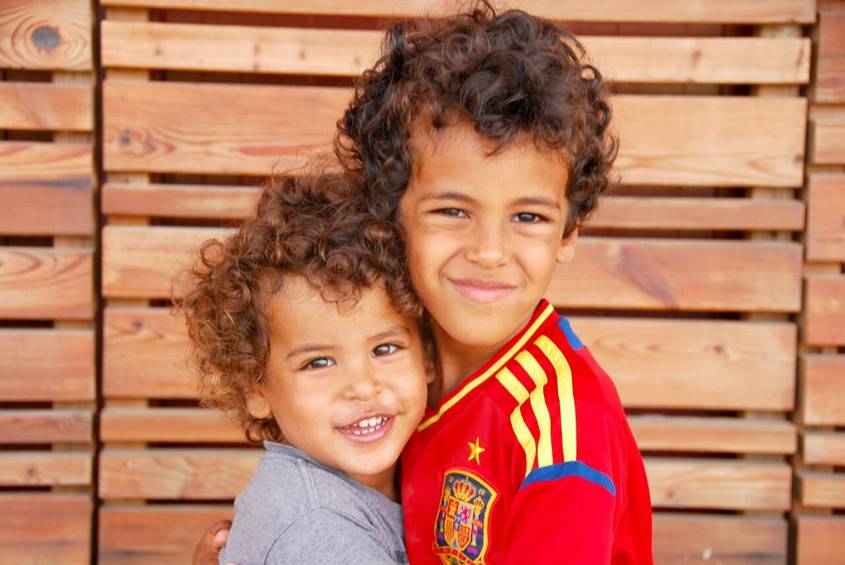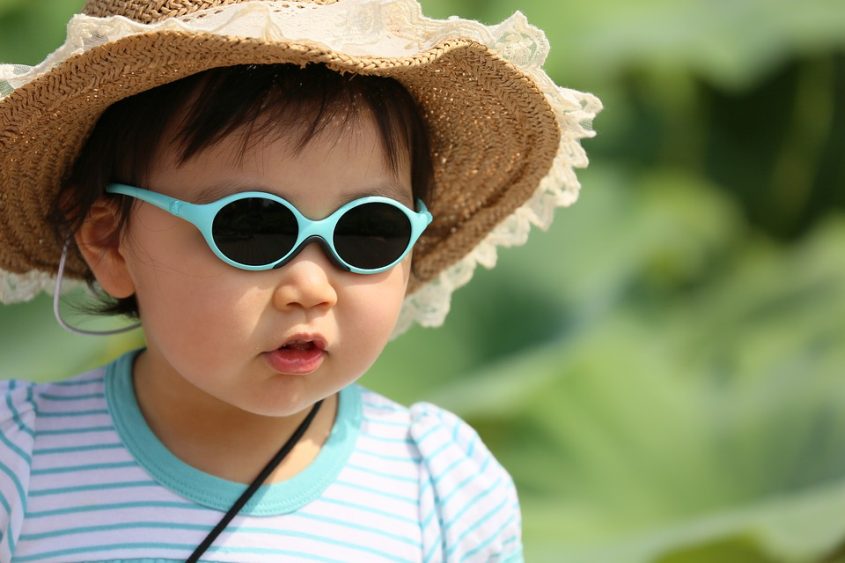
Children do not really choose their parents (I say “really” because some people claim that we chose our parents in some karmic or spiritual way). Like it or not, they are born helpless and needy. Therefore, the power over the relationship is in the parents’ hands and the fate of the kids depends on the parents’ ability to care for them.
During my parenting workshops and seminars over the last 30 years of my career, I have seen many thousands of parents. I can tell you that parents are full of love for their kids and want to give them the world. If not, I would never have met them in my line of work…
Parents want their children to be healthy, successful and happy. That’s it! If I could sum up all of parents’ desires, they would fit into those three areas. I meet them when they feel they cannot do that, because their kids are not healthy (which is very hard for a parent), they struggle at school, lack social skills, have behavior issues or are simply unhappy. Too many times, their children need to overcome two or even three of these things.
My conclusion is that parents’ hearts are in the right place, but action always beats intention. Parents simply do not know what kids need in order to be healthy, successful and happy.
Good intentions are not enough. They’ve never put an onion in the soup yet
Sonya Levien
Here I have gathered some important things children need in order to reach a good place in their life. They are highly dependent on us, the adults in their life, to give them these things. That is because these things determine their strength of character and their ability to overcome sickness (of body and soul), failure and misery.
Top 10 children’s needs
Go over the 10 things children need listed below. Be honest with yourself and evaluate whether you help them fulfill each need or not.
- Kids need attention. All parents understand that attention is important but they do not distinguish between good and bad attention. Attention is reinforcement, and the child learns from it what is important in life. Whatever you focus on grows. In a strange way, if you pay attention to things you do not want your kids to do (“Stop playing with your food”, “Don’t hit your brother”), their mind keeps without the negation (“Play with your food”, “Hit your brother”). So ignore bad behavior and only pay attention to good things (“Well done for being patient”, “Your painting looks great”, “That’s so kind of you”, “Thank you for playing quietly while I had a nap”).
- Kids need physical touch. Parents understand this when their children are young, but for some distorted social reason, they gradually decrease the hugging and touching of their children, until they stop completely when they are teenagers. I know grownups who see their parents once in three years and shake their hands. Physical touch is essential to our health and wellbeing. Hugs your kids a lot! It will boost their confidence and improve their self-image tremendously. The simple rule is “12 hugs a day keep the doctor away”.

- Kids need to know that your love is unconditional. If you put conditions on your love, you teach your kids that love is earned and has something to do with obedience and submission. Your love needs to be there even if you are angry or upset, even if they do not meet your expectations, even if they are struggling and even if they do things that you disagree with. Kids are not an extension of their parents and they need to develop their own mind. Make sure to tell your kids that you love them no matter what. If you want to know the ultimate way of doing this, read I will come! This is a true story of something that happened to me and thought me what kids really need (or watch this video).
- Kids need good role models. Everything they learn, they learn from you first. Through a special Neuro-Mirroring function in their brain, they learn everything they need by copying your behavior, thoughts and feelings. Think of them as little mirrors. When you do not like something you see in them, do not try to fix the mirror…
- Kids need boundaries. Most parents think that boundaries are for discipline, but I disagree! Boundaries make children feel safe. Boundaries define the space where they can function and feel secure. Set boundaries that promote safety, health, happiness, not boundaries that scare kids from crossing them. “In our family, we drink water, because we want to be healthy” is a safe boundary, whereas “If you drink cordial, you will get sick”, or worse, “If you dare to buy soft drinks, I will be upset” are not.
- Kids need consistency. If we have boundaries, we need to stick to them, because this is how we project a sense of confidence to our children. Our confidence is the source from which they draw their own confidence. Imagine that your confidence is a physical strength. Your kids will lean on you throughout their lives. If you can stand strong, they will trust you. Consistency is not being stubborn, aggressive, or controlling. It is being strong and confident in your choices, abilities and value. If you believe that drinking water is the right thing, you do not lose your temper when your kids drink something else. You calmly fill their glasses with water. No apologies. No anger. No judgment. Just consistency.

- Kids need freedom. Within the boundaries, children need the freedom to explore the world around them. Being too protective only sends them a message that the world is scary. They need the freedom to try new things without the fear of triggering their parents’ anxiety. Yes, it is a scary thing to imagine what can go wrong in the playground, but this cannot mean your kids will never experience a playground. Kids need the freedom to think differently from their parents too. It is the only way for them to develop independent thinking. Kids need the freedom to make mistakes and learn from them without judgment. Learning is a different process than teaching. Teaching is giving, while learning is receiving. In parenting, what matters is not what we give, but what our kids choose to take. Set them free. They are not an extension of you and they do not need to please you with obedience because you have raised them.
- Kids need to know they are special. This is essential for children’s healthy development. All the people who go to therapy and talk about a sibling who invaded their life are there because their parents did not fulfill this need. Never compare your kids. Never give your child the feeling he or she is just one more child and that there is nothing special about him or her. Help all your kids find their uniqueness and nurture it. Hobbies are a good place to start. I dedicated a whole book, called Be Special, Be Yourself (for Teenagers). If you do not give them this feeling, you are in for a rough ride during their teen years.
- Kids need friends. We are all social creatures and a very short time after our kids are born, we can no longer fulfill all their social needs. From 10-12 months of age, kids need to be in other kids’ company, so that they can learn, grow and evolve. Make sure you dedicate at least as much energy to their social life as you do to their academic performance. Teach them social skills and give them opportunities to practice them. Invite friends over and encourage them to go to friends. Have parties and play dates. Learn about their friends and encourage good and healthy relationships. If you think friends are a threat to your role, you risk losing your children’s trust. This belief will backfire as a self-fulfilling prophecy, when subconsciously, you turn your fear into reality.

- Kids need to express themselves. Many of the problems in life are due to lack of self-expression. Children need to have an outlet of self-expression, because this is a way of dealing with challenges. No, I do not mean complaining, whining, judging or criticizing. These are not a self-expression, they are abuse! We all need ways to handle challenges and this is done through reflection. If we have a problem, we need to have an outlet that will not harm others. Arts, sports, music, gardening, social gatherings and dancing are all ways to express ourselves without harming others. It is always better to play a musical instrument to calm the mind when challenges occur than to hit someone with a bat. Many children learn over time that they cannot express discomfort in their parents’ presence. When they do so, they are judged, made fun of, shamed or blamed for it. Over time, they lock all their feelings inside. if they have no other outlet, they will grow up expressing themselves in very dysfunctional ways through criticism, blaming others, judgment and complaints, and this will create a vicious cycle of others keeping away from them and increasing the dysfunctional behavior.
Now be kind to yourself. Go over the list again, but this time, think whether your own parents helped you fulfill each need as a child. You may never have experienced having this need met, so you may not know how to help your kids.
If you do discover that your parents never gave you something, forgive them! They probably never got it from their own parents. Most likely, they had it worse than you did.
Either way, you can change it now. You can stop the cycle and start a new path by focusing on these needs and making a conscious choice to help your children fulfill them.
The easiest way to do this is to keep this list and focus on one of them every day. Over time, you will notice your children growing healthier, more successful and happier. And that is what we want, isn’t it?
Parenting matters!
Ronit














